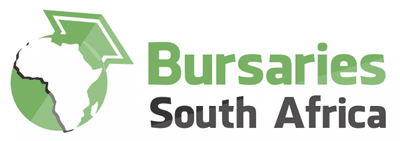UFS and South African Society for Plant Pathology (SASPP) Fellowship South Africa 2022 – 2023
ABOUT THE COMPANY – UFS & SASPP
The University of the Free State (UFS), located in Bloemfontein, was first established in 1904 and renamed in the 1950s. The university consists of multi campuses and today, is one of the leading public universities within the country.
The South African Society for Plant Pathology provides many opportunities to plant pathologists. Here, pathologists are able to meet and exchange information they have on their study as well as connect based on shared scientific interests. The South African Society for Plant Pathology also allows pathologists to coordinate affiliation with various scientific societies within the country, as well as communicate with various foreign societies where they are able to disseminate and gather information relating to the Pathology of plants.
ABOUT THE UFS & SASPP FELLOWSHIP PROGRAMME – FIELDS COVERED
The University of the Free State is inviting students to apply for the Postdoctoral Research Fellowship programme, in the Department of Natural and Agricultural Sciences/ Plant Sciences, for the 2022 academic year.
The Fellowship programme is available for the Plant Pathology discipline, whereby candidates will conduct research in the area of soil-borne pathogens of agricultural crops, as well as their biological control.
During the fellowship programme, the candidate will be expected to engage in full-time Post-Doctoral studies under the supervision of Prof. Wijnand Swart in the Division of Plant Pathology (Department of Plant Sciences.) The fellowship programme will officially commence on 1 January 2021 or soon thereafter.
** RELATED BURSARIES **
- View our other Postgraduate Bursaries and Scholarships here.
- View our other Science Bursaries and Scholarships here.
- View our other Bursaries closing in November 2021 here.
ABOUT THE UFS & SASPP FELLOWSHIP PROGRAMME – COVERAGE VALUE & DUTIES
The programme will run for a duration of 2 years and is valued at R220 000 for the annual fellowship and R30 000 for additional research expenses.
The duties and responsibilities of candidates during the programme are:
- Lecturing a 2nd-semester course in Ecology of Plant Pathogens as well as a course in Host-parasite Interactions
- Ensuring that lectures and practical classes for undergraduate and post-graduate modules are planned and prepared
- Ensuring that students’ class tests, exams, and tutorials are checked and assessed
- Providing supervision on post-graduate research (Honours, Masters, and PhD)
- Contributing and undertaking researcher/ performing individual research/ working with other researchers
- Ensuring that your own research is published in peer-reviewed journals
- Securing and finding sources of funding for own research as well as scholarly projects
- Develop and lead internal networks (e.g. participating and charing in departmental and/or university committees/ working groups
- Providing professional advice and acting as an external examiner to other universities
- Leading and developing external networks
- Creating a network with external contacts with the aim of collaborating (e.g. educational bodies, professional bodies, employers)
- Establishing partnerships by participating in international visits
ELIGIBILITY REQUIREMENTS FOR THE UFS & SASPP FELLOWSHIP
Applicants must satisfy the following minimum entry criteria before applying (please note that failure to satisfy all the requirements will lead to your application not being considered):
- You must have a completed a Doctoral Degree (PhD.) in Plant Pathology, specialising in soil-borne diseases and biological control of pathogens, with strong undergraduate training in host-pathogen interactions and microbial ecology
- You must have obtained your PhD. within the last 4 years
- You must intend on pursuing full-time Post-Doctoral studies, in the research are above
- You must intend on studying at the University of the Free State (UFS), in 2022
- You must be younger than 50 years old
- You must be willing to stay at the Bloemfontein Campus of the University of the Free State for the duration of the programme
- Preference will be given to candidates from designated groups
HOW TO APPLY FOR THE UFS & SASPP FELLOWSHIP
Students who meet all the criteria may apply by submitting clear copies of the following supporting documentation (the submission of these documents is compulsory – if any items are missing, your application be disregarded):
- PhD. degree certificate
- Academic transcripts
- Motivational letter to support your application, and stating your earliest possible starting date
- Updated Curriculum Vitae
- Contact details of 2 academic referees
- Example of your academic writing skills (this can be an article or chapter of your PhD. thesis)
Note: there is no application form to be completed for this programme – students need only submit the documents above to apply.
Applications must be submitted via email to Prof. WJ Swart at: swartwj@ufs.ac.za
(Insert the words “UFS SASPP Fellowship Application” in the email subject line).
NOTES ABOUT THE UFS & SASPP FELLOWSHIP
- Candidates will be required to attend an online interview
- Successful candidates will be contacted within 6 to 8 weeks after the interviews
- Successful candidate may be offered permanent employment if their performance during the prorgramme is satisfactory
CLOSING DATE FOR THE UFS & SASPP FELLOWSHIP
5 November 2021.
(Applications submitted after this date will not be accepted – please apply before the closing date to ensure your application is considered.)
CONTACT THE FELLOWSHIP PROVIDER
For any queries related to this fellowship programme, please contact The University of the Free State and the South African Society for Plant Pathology directly:
Contact Person: Prof. Wijnand Swart
Email: swartwj@ufs.ac.za
Please do NOT contact UFS / SASPP if this bursary has already closed. View our other bursaries open for application here: https://www.zabursaries.co.za/bursary-news/
This bursary listing was last updated in October 2021.
SA Bursaries wishes you the best of luck with your application! Please remember to SHARE this page with anyone you know who may be in need of bursary funding.
